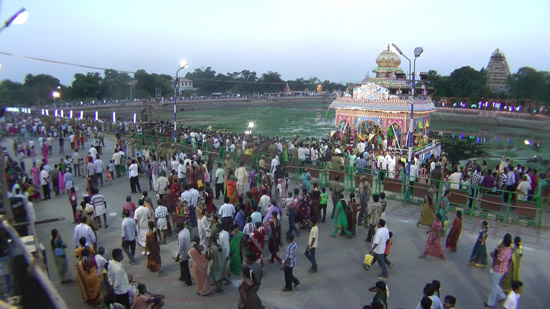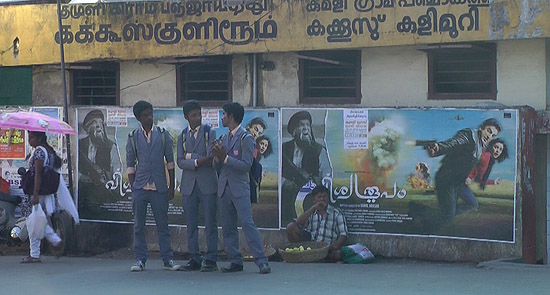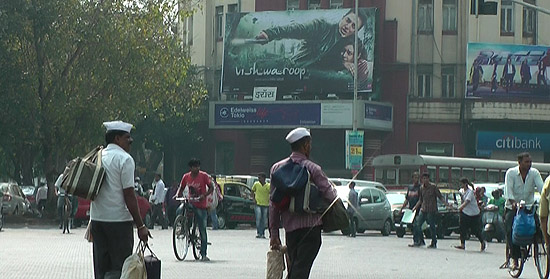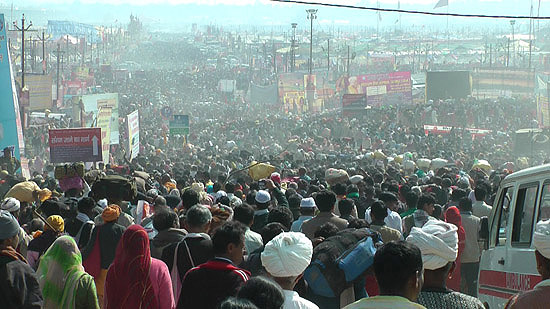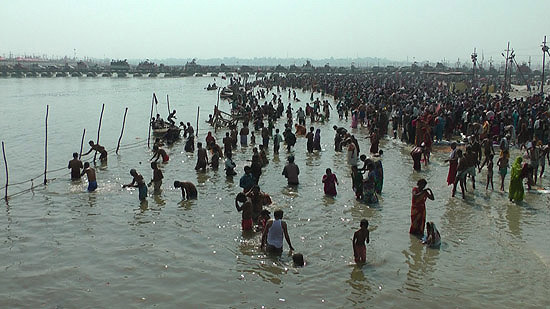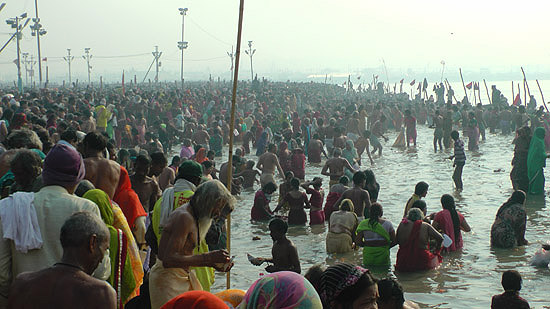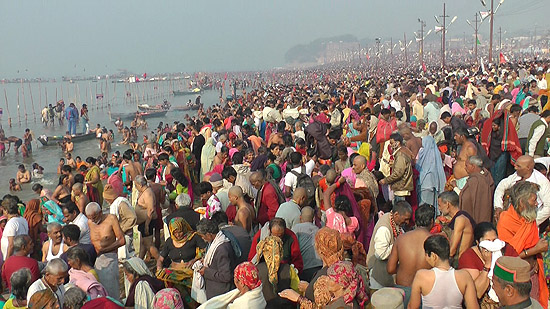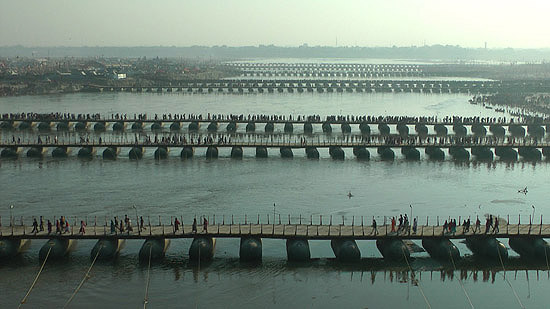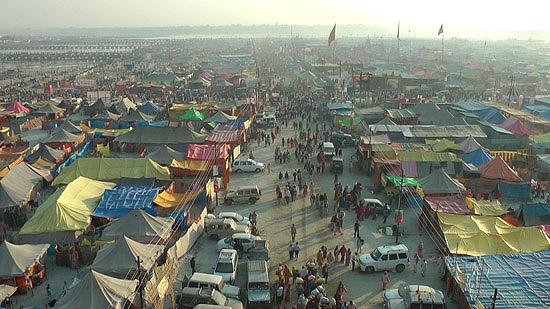 |
||
|
|
|
|
I guess art is an act of violence, in a way. It's an emotional outpouring, and I don't really know ... I think that violence in the cinema is necessarily a fetish. Emotionally, our artistic expression consists of sex or violence. It all boils down to those two pure emotions that we have. But where erotica or sexuality is not fantasy, because most of us do it, violence, on the other hand, is fetish, is fantasy. There is a sexuality to violence that I find very intoxicating. But I think that that's what turns me on... The whole Dogme concept was inspired by Pusher, even though they will never admit it. Danish culture because of socialism and our mindset, everything is generally in good taste, except Lars [von trier]. That's what I like about him.
I always liked movies like American Graffiti and Gregory's Girl. Gregory's Girl is particularly perfect because it really captures that summer holiday bubble of teenage utopia. Even though it's got a happy ending, there's a feeling that these characters may never see each other again. So the idea with The World's End prologue is that Gary has that night stamped into him, and he needs to get back to that level of perfection. I'm very happy with my life and career, but I do find myself having serious attacks of nostalgia and I don't quite know why. Even though I've got to travel the world and do amazing things, I still want to go back to my teenage years and change little aspects of it. It's strange, but it does continue to bug me. It's like Kafka's universe [in "The Hunt" ] where if he screams out loud he is guilty, if he shuts up he's guilty. There's nothing to do. He's fighting against emotions with his own rational way of treating this problem. That is the only way he can win. The truth is, I make my films for myself. I don't have a career plan which involves being popular or successful with a big audience. For instance, the last time I was in Cannes, the crowds turned out to see Juliette in a largely English-language film; this time I've come with a film in Japanese and three actors who are almost totally unknown. Many people believed that after Certified Copy I'd be making more films with stars but I did the exact opposite. Indeed, if there's a country as culturally isolated fromthe rest of the world as Iran, it may be Japan. So I feel almost as if I've gone back to square one. S21: The Khmer Rouge Killing Machine was a milestone and I admire Rithy Panh's work in general, but that was more of a contrast. Normally when you hear from perpetrators they've been removed from power and their acts declared criminal, so they either deny what they've done or they apologise for it. Because the killers [in The Act of Killing] have won and remained in power, the whole film is an attempt to understand the imagination of a regime of impunity – and what happens to our humanity when we build our normality on terror and lies, and use storytelling to deny the most awful parts of our reality, not to see it for what it is. The reason I cast professionals and non-professionals has less to do with a mixture of documentary and fiction than the tension that arises when the two confront each other. What I'm asking from all actors, professional or nonprofessional, is that they be as authentic as possible in front of the camera... What you have to realise is that at that time May '68 was not mythologised. It was a failed revolution. Something had happened, and it was not clear what. People were trying to make sense of it still. There's not one historian who has really cracked it. Was it a socialrevolution? Was it a revolution of youth? What they learned back then from May '68 is that such an event could happen; meaning that, in terms of a Marxist reading, those were revolutionary times, there was potential for revolution. May '68 was a failure but there was the desire, the energy within the society to have a revolution, and it was not an abstraction. All of a sudden you had this dogmatic leftism that got organised, because it would be working for the coming revolution. They hated everything that society had to give them, they did not trust it or want any of it: no jobs, no career, no family. Everything had to be invested in the future, and that's what carried the 1970s... The stories where the audience have to adjust their perspective are the ones I'm drawn to. For me, it's always about a situation or characters which bring your emotions to a place that's irrational – where you question your sense of what's right and wrong. When they were doing press and finally getting this celebrity status they had craved, they were a little bit delusional about why it was happening. Alexis wouldn't talk about the robbery: she seemed to think they were interviewing her because of her style or something. The boy was talking about how many Facebook followers he had gained. So I thought their perspective on it provided this whole other element which showed how wrapped up they were in celebrity. That part of our culture used to be small – that pop, 'guilty pleasure' side of things. Now it just won't stop growing. I've never understood the cult of Hitchcock. Particularly the late American movies … Egotism and laziness. And they're all lit like television shows … I saw one of the worst movies I've ever seen the other night [Rear Window] … Complete insensitivity to what a story about voyeurism could be. I'll tell you what is astonishing. To discover that Jimmy Stewart can be a bad actor … Even Grace Kelly is better than Jimmy, who's overacting. I don't admire or worship violence. To fight violence with violence is a tragedy. This film ["A Touch of Sin"] seeks the roots of violence... Chinese society is strange: people feel if you talk about sad or tragic things it will have even more of a negative impact on society. It's really strange logic. If you can't even face it in a film, how can you face it in reality? If even films cannot refer to [violence], it will always be unfamiliar to us and violent incidents will increase. I have this big sequence [in "RED2" ] where I walk into an embassy and start shooting. I kept saying to the director, 'I will not shoot to kill. I want it to be very clear that I'm not killing people. Please, make it very clear'. So Victoria's only partially disabling them. I do get terribly upset when I see films where people are just randomly shot. I think they all have families to go to, children at home, you know... All families have secrets. And the ones that don't think they do have not scratched the surface hard enough yet. The list of British film-makers who have relocated to LA is very long and it's worth asking why. It's just not possible to break out of a club, and clubs are what the Brits do really well. Everything is a fecking club. We have the art club, the fashion club and the film club. Well, to be fair there are a few film clubs. There's the Working Title "Isn't London sweet" club, and then we have the BFI "Isn't the UK depressing" club... ...a staple of the superhero mythology is, there's the superhero and there's the alter ego. Batman is actually Bruce Wayne, Spider-Man is actually Peter Parker. When that character wakes up in the morning, he's Peter Parker. He has to put on a costume to become Spider-Man. And it is in that characteristic Superman stands alone. Superman didn't become Superman. Superman was born Superman. When Superman wakes up in the morning, he's Superman. His alter ego is Clark Kent. His outfit with the big red "S", that's the blanket he was wrapped in as a baby when the Kents found him. Those are his clothes. What Kent wears - the glasses, the business suit - that's the costume. That's the costume Superman wears to blend in with us. Clark Kent is how Superman views us. And what are the characteristics of Clark Kent. He's weak... he's unsure of himself... he's a coward. Clark Kent is Superman's critique on the whole human race. If you wave away all the computer-generated smoke and see past the pulverized buildings, it's possible to remain hooked on the resonant origin story that wends through "Man of Steel" — that of the immigrant. It's a story that begins with the launching of the spaceship and continues through a child's pained attempts to assimilate and a young man's sense of not belonging. In his excellent 1987 essay "What Makes Superman So Darned American," Gary D. Engle wrote that "Superman raises the American immigrant experience to the level of religious myth." Those who say I despise people do not understand me... It is always my intention for the viewers to see themselves. I do not judge, but I show how people behave in their longing for happiness. If the viewers have a problem with my films, it may be that they have a problem with themselves too. Actors tend to save up most of their real feeling for the camera and are unable to use it in real life. What I was trying to do when we were shooting these [lesbian sex] scenes [ in "Blue Is the Warmest Color" ] was to film what I found beautiful. So we shot them like paintings, like sculptures. We spent a lot of time lighting them to ensure they would look beautiful; after, the innate choreography of the loving bodies took care of the rest, very naturally. What does he know about lesbians? And how can you ask two actresses who are not lesbians to play any scene that is something other than his fantasies? They are exquisitely lit actresses pretending to have sex. They are made to look ridiculously, flawlessly beautiful. The film is extremely voyeuristic... If you take the sex out, no one would be interested in this movie. I think as public figures, as entertainers, that we have a moral responsibility to only portray characters, that if, if they have disruptive behavior or behavior that is negative that it has to be responsibly explained, I really do not believe that we can anymore just say, 'Oh, let's make our person somebody mentally ill.' That's really easy because that that plays into the stigma that people with mental illness are violent and that is not the truth. Most people with mental illness are not violent. And most people who commit violent crimes do not have a diagnosed mental illness. That is wrong, and it's proven wrong and it is immoral to keep that perpetrated.
I don't know the sources of information for the director and the actresses (who are all straight, unless proven otherwise) and I was never consulted upstream. Maybe there was someone there to awkwardly imitate the possible positions with their hands, and/or to show them some porn of so-called 'lesbians' (unfortunately it's hardly ever actually for a lesbian audience). The key tension in my films is between my Western intellectual origins and the emotional life of nature. I do the same movie over and over. I hide it – I change period, location, hero. In depicting these wildly luxurious and disingenuous lifestyles, director Steven Soderbergh seems to confuse Liberace and Thorson with the out-gay Las Vegas magicians, Siegfried and Roy. Behind the Candelabra is partly, unmistakably, a freak show (Magic Mike II). And this is where the actors' empathy and the director's condescension collide. It recalls that ungracious moment in George Clooney's Good Night and Good Luck taking a gratuitous slam at Liberace, ignoring the fact that his flamboyance was never totally deceptive. Liberace's public (like Little Richard's) always "knew." (Liberace was the Elton John of his times, a glitzy dresser and colorful entertainer to all.) The label "independent film" doesn't mean what it once did, and the Sundance festival is part of the reason. The moment aspiring film-makers realised there was a potential shortcut to distribution and acclaim, they started smoothing off their rough edges – consciously or without even noticing – or at least they began to stylise themselves. Either way, the overall effect of the festival has not been to promote individuality but to erode it. Lots of psychomagic in this film! My son playing my father. Psychomagic! The boy in the film is afraid of the night, just as I am. So he paints himself black. Psychomagic! Not afraid of the dark any more... People say I am mad. I am not mad. I am trying to heal my soul. What I used to hate about filming is that I'd want to get up before dawn in Calcutta and film the sunrise. But you'd have to go knocking on the door of the director of photography, who's sleeping, and say, 'Please can you get up?' ... [But with this tiny camera, no bigger than a mobile phone, ] now is the time of the essay film: that way of taking an idea for a walk. Just as the 1990s was the era of the Dogme manifesto, I think someone – maybe I – should write a manifesto for the film-essay form.
|
||
I've learned that people will forget what you said, people will forget what you did, but people will never forget how you made them feel.
When people talk about a film like this, they say much more about who they are than the film. I do have a really strong notion of Oscar Wilde. I see him very clearly. He was blinded by success, blinded by stardom, and never understood, ever in his life, that he was vile to his wife – but I think his flaws are touching and great. I love him for his faults and his snobbery. I've always given my characters moral and sexual freedom, including them changing their sex or switching sexual preferences, but in this film [ "I'm So Excited" ], the sex is a real celebration of life. As for the bisexuality, it is present in our daily lives, and much more than we think, because it's part of our nature. Some people felt a little bummed out when [David Bowie] said he was a latent heterosexual later in the '80s. But we all have our queer straight uncles, and he's the greatest one. You think about the Mississippi River, it moves at two to three miles per hour, but it's also one of the most windy rivers in the world. And that was like a director's concept that I had going into the movie. If nothing else, "Oblivion" will go down in film history as the movie where Tom Cruise pilots a white, sperm-shaped craft into a giant space uterus. The scene is more interesting to describe than it is to watch. Cruise's sperm-ship enters through an airlock that resembles a geometrized vulva. He arrives inside a massive chamber lined with egg-like glass bubbles. At the center of the chamber is a pulsating, sentient triangle that is also supposed to be some kind of mother figure. Cruise must destroy the mother triangle and her space uterus in order to save the Earth. If you make fantasy too real, I think it loses the quality of the nightmare of the dream. Some purists don't like how Errol Morris makes implicit fun of his subjects. Others love how he lets liars hang themselves in front of our eyes. Every actor has to move in a Terrence Malick film — that's the requirement. If you stop, he'll tell you, 'No, no, keep moving.' You can't be static. It's a choreography.
|
||
The Grandmaster is not only about martial artists, it is about where Hong Kong came from. In the 1930s, 40 and 50s, there were so many immigrants moving to Hong Kong because of war on the mainland. All this new blood and new people created the Hong Kong we have today and I wanted people to think about that. บันทึก: ปรากฎว่าบรรพบุรุษผู้เขียนไม่ได้มาจากซัวเถา (ซ่านโถว / Shantou) แต่มาจากกิ๊กเอี๊ย (เจี๋ยหยาง / Jieyang) ซึ่งเป็นหนึ่งในสามเมืองหลักของแต้จิ๋ว อีกเมืองหนึ่งคือ เตี่ยจิว / แต้จิ๋ว (เฉาโจว / Chaozhou)
บันทึก: ไปตามหาญาติที่ซัวเถา The past is a foreign country; they do things differently there. As I was writing [ "Spring Breakers" ] I thought, 'If you could have the dream, what would it be?' The dream would be these girls and what they represent. There's obviously something very exciting about working with these girls who are, in some ways, in real life, representative of that culture and that pop mythology; and also people who the public can identify as personalities that are complete contrasts to what they're portraying in the film. I love that that part is a conceptual shock on top of the actual film. Critics, instead of doing their job, which is watching, thinking, reflecting, and writing, what they do is watch, don't think much, get together, and behave like they're football hooligans supporting Manchester United, for example. So they like it or they don't and they insult and they shout and they don't expect anything back so they are irresponsible and they can do whatever they want. And it is a pity. The difficulty was directing eight actresses [ in "8 Women" ], none of whom want to be directed the same way. Oh, I was so tired! Catherine Deneuve just wants to know what to do with her hands. Isabelle Huppert wants to know nothing except her place. Emmanuelle Béart wants to know the psychology of her character. Sometimes you have Catherine and Isabelle in the shot, which meant that Fanny Ardant was just an extra in the background. But I still have to find something for her to do... When you work with stars, you have to play with their image because they are not virgins in the eyes of the audience. Homosexuality is everywhere and nowhere in The Servant. Harold Pinter's superbly controlled, elliptical, menacing dialogue is able to hint, to imply, to seduce, to repulse, in precisely the manner that gay men were forced to adopt in 1963, when homosexuality was still a criminal offence, and when representing homosexuality on screen was forbidden. To locate the gay gene in The Servant, you have to go back to its source, the 1948 novella written by Robin Maugham, the nephew of W Somerset Maugham. The Servant has its spark in an extraordinary event in Maugham's own life, to be treasured by connoisseurs of British sex and class... In the book, of course, Maugham heterosexualises the trap. [ In "Reality" ] I wanted to show that it was a sort of contagion. It's like a science-fiction film, where the infection starts from the neighbours, the family, and gradually takes hold of Luciano... The dreams are more important to him: the idea of getting to this artificial paradise. That is a tragedy because his reality is not so bad. But then, this is Italy today. Pasolini was talking about it back in 1975 – how we were changing, anthropologically, as we were surrendering to consumerism. I don't think Luciano is so far from me; we are all flawed. We can be victims of the system and also complicit in it too. That is true of the characters in both Gomorrah and Reality. All of those years, I felt like 'Heaven's Gate' was a beautiful, fantastically colored balloon tied to a string fastened to my wrist, so the balloon could never fly. I hate even the idea of a synopsis. When stories are really working, when you're providing subtextual exploration and things that are deeply layered, you're obligated to not say things out loud. When Paolo and I are asked about post-war Italian cinema, we always use the metaphor of the tree: the roots deep underground are Rossellini, Visconti and De Sica while the branches above are directors like us, Bertolucci, Scola, Ferreri and others. Although we all sprouted off in different directions, the roots remained... We are used to knowing exactly what's going on when we are watching something, which is very strange because in life it is precisely the opposite. Most of the time in life we are living through things and don't know what they mean at the time, except at a very superficial level. It is only later they become important, or take on a particular relevance.
|
||
My aim [for "Like Someone in Love" ] was on one side not to neglect their culture and their specificities, but at the same time not to leave any display of Japanese culture in my film. My concern was to find out whether there were any universal qualities in them as characters. In the aftermath of Like Someone in Love's dicey Cannes premiere, Kiarostami explained: "It's better to say that we are like someone in love rather than asserting that we are in love. Death or birth are definitive; love is nothing but an illusion. We have in this film four people who are like some people in love." By now, it seems obvious that the creatures who populate Kiarostami's films are either impostors, observers, and/or "real people" who are blithely unaware that they've been hijacked by a pointedly ambiguous meta-construct of some kind—even when Kiarostami summons other filmmakers to appear as themselves (Close-up), they are transformed into agents of his careful deception, deployed to convince the viewer of a reality that Kiarostami is using their celebrity to further obscure. Indian films have this obsession with hygienic clean spaces, even though the country's not so clean. They're either shot in the studios or shot in London, in America, in Switzerland – clean places. Everywhere except India... Every fucker is trying to become the hero of his own imaginary film. I swear as long as there are fucking movies in this country, people will continue to be fooled. The opiate offered by Bollywood fantasy is part of India's inability to deal with its reality. When you get here, you'll be told we Indians invented everything from the Internet to hard-boiled eggs to spaceships before British stole it all from us. บันทึก: The White Tiger เป็นนวนิยายรางวัล Booker Prize ปี 2008 Aravind Adiga วิจารณ์สังคมอินเดียเปรียบเทียบกับจีน แล้วสรุปว่า จีนเจริญกว่าอินเดีย เพราะจีนใช้ระบบอำนาจนิยม ส่วนอินเดียเป็นประเทศประชาธิปไตยที่ใหญ่ที่สุดในโลก แต่ที่เลวร้ายคือ ระบบวรรณะดันอยู่ร่วมกับประชาธิปไตยในอินเดียได้อย่างไม่ขัดเขิน มันจึงกลายเป็นประชาธิปไตยที่มีการกดขี่ทางชนชั้นอย่างเปิดเผยด้วยเสียงข้างมาก
บันทึก: 27 Jan 2013 เทศกาลลอยกระทง Float Festival ซึ่งเป็นเทศกาลที่ใหญ่ที่สุดของเมือง Madurai ปีนี้ไม่มีน้ำลอยกระทง ปกติแล้วจะต้องเคลื่อนหรือลาก ซุ้มที่ประดิษฐานเทวรูปไปไว้ที่เจดีย์กลางน้ำ เพื่อให้ทุกคนได้ลอยประทีบไปบูชา แต่ปีนี้ต้องนำเทวรูปมาประดิษฐานที่ริมฝั่งแทน เพราะกว่าครึ่งหนึ่งของแท้งค์น้ำนั้น แห้งจนถึงพื้นดิน บันทึก: ขณะที่ผู้เขียนเดินทางอยู่ในอินเดียใต้ มีข่าวใหญ่ในวงการหนัง Kollywood ซึ่งเป็นหนังภาษา ตามิล/ทมิฬ มีศูนย์กลางที่เมืองเชนไน (Chennai) เมืองหลวงของรัฐทมิฬนาดู เป็นการสั่งห้ามฉายหนังใหญ่ประจำปีชื่อ Vishwaroopam
... ทำให้เกิดข่าวลือต่างๆนานาเกี่ยวกับเหตุผลในการห้ามฉายครั้งนี้ บ้างก็ว่าเป็นการหาเสียงล่วงหน้ากับกลุ่มมุสลิม สายอนุรักษ์นิยม บ้างก็ว่าเป็นปัญหาส่วนตัวระหว่างหัวหน้ารัฐบาลกับ Kamal Hasaan ผู้กำกับ/นักแสดงชื่อดัง บ้างก็ว่าเป็นเพราะ Hasaan จะเอาหนังฉายแบบ pay-per-view ก่อนเข้าโรง เลยโดนขาใหญ่เล่น สุดท้ายหลังจากวุ่นวายอยู่สามอาทิตย์ รัฐบาลท้องถิ่นสั่งให้ตัดหนังออก 7 ฉาก แล้วฉายได้ตามปกติ
With freedom comes responsibility. And with absolute freedom of expression comes extraordinary responsibility. We can't be free of speech and do a silly film like Innocence of Muslims. And we should always remember that India is a work in progress...
บันทึก: 10 Feb 2013 : Maha Kumbh Mela (มหากุมภเมลา), Allahabad (อิลลาฮาบัด), India
|
||
|
||































